Joint Shield™ Ingredients
ApresFlex® - Boswellia Serrata
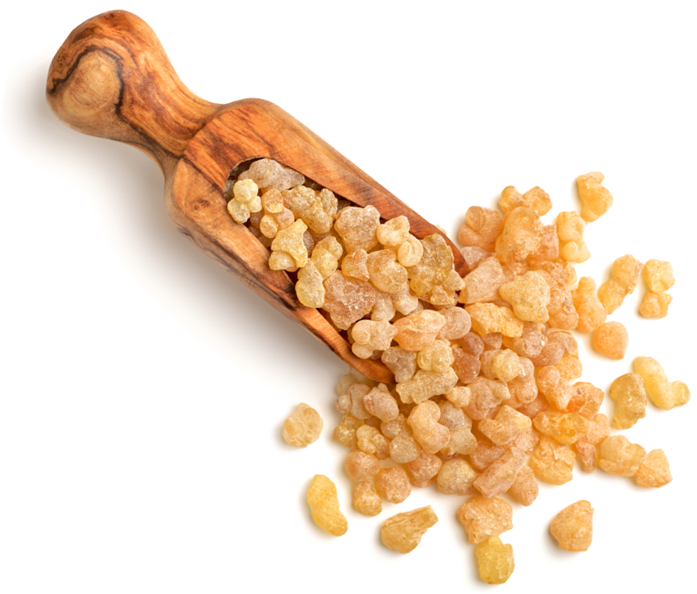
ApresFlex® is a super-concentrated compound that combines extract of Boswellia serrata and B. serrata non-volatile oil with AKBA – the most powerful of the four boswellic acids. [4] In the body, each of these three substances enhances the effects of the others.
You can think of ApresFlex® as Boswellia on steroids.
Clinical trials with AprèsFlex have demonstrated:
- 50% reduction in pain in 30 days [4]
- 45% more functionality in 30 days [4]
- 70% reduction in pain after 90 days. [1]
According to the Cochrane Review, which is widely considered the pinnacle of scientific scrutiny, “high quality evidence” shows that Boswellia improves pain & functionality in people with osteoarthritis. [2]
In addition to impressive reductions in pain, AprèsFlex® positively influences biological markers associated with inflammation and joint health (CRP, TNFα, and IL-6). It’s also demonstrated an ability to block the action of enzymes, like MMP, that break down cartilage, collagen and connective tissues. These enzymes are major players in the onset and progression of osteoarthritis. [3,4,5]
Blocking the action of these enzymes naturally results in the proliferation of healthy joint cells. Over time this will provide protection to the cartilage that lines our joints and help preserve them for a lifetime. [5]
One of ApresFlex® most impressive characteristics is how quickly it goes into action in the body. Taking ApresFlex® for just 5 days led to significant reductions in pain and improved functionality! [4]
When I created the formula for Joint Shield™, I wanted to make sure to include ultra high-quality, fast-acting substances that would reduce pain rapidly and make people feel better as well as compounds that would radically improve the health of your joint tissues over time.
Meriva® - Curcumin
Thousands of studies have been published on the benefits of curcumin. It may very well be the most thoroughly investigated botanical substance ever. [6] These cumulative weight of all this evidence makes a strong case that curcumin functions as a sort of “master switch” controlling inflammation in your body. [7]
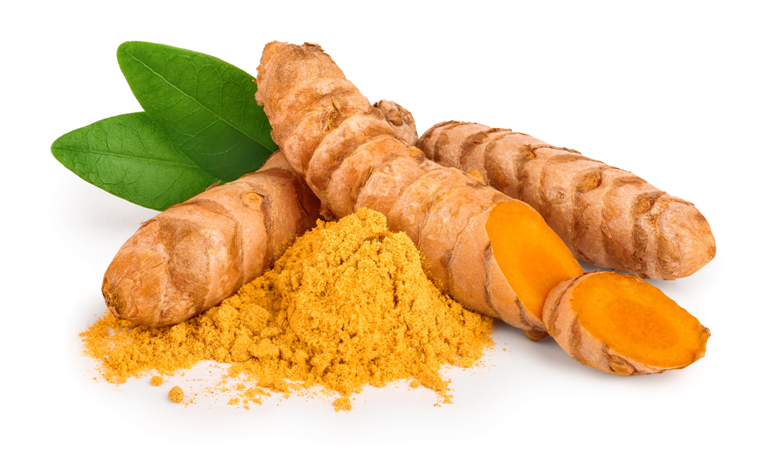
Studies on curcumin use in osteoarthritis and rheumatoid arthritis consistently demonstrate impressive results that include:
- Significant reductions in pain
- Decreased Inflammation
- Improved functionality
- Better mood & mental state
- Improved quality of life [11,12,13,14,15,19]
Multiple studies have found curcumin to be just as effective as some of the most-commonly prescribed anti-inflammatory drugs, and without the horrible list of side effects. [8,9,10] One study did a head-to-head comparison of the effectiveness of 12 different well-known anti-inflammatory substances – including prescription strength anti-inflammatory drugs. Their findings showed that aspirin & ibuprofen were weakest in terms of anti-inflammatory effect and that curcumin was among the most potent. [16]
Curcumin gets it’s massive effects due to its permeability. Once it’s in your body it seems to be able to go everywhere (even to your brain). It also has the unique ability to act on & even alter the genetic expression of specific molecules & pathways that not only regulate inflammation, but the cell cycle, oxidative stress too. [7,18]
Curcumin’s medicinal properties are undeniable, but getting into the blood stream is not easy. Curcumin is highly unstable tends to degrade rapidly (under 20 min) when exposed to the harsh acid in the digestive track. Some trials have used ridiculous doses (up to 12g!) in an attempt to overcome this and they still failed to get enough curcumin into the bloodstream to achieve the desired effect.
Meriva® solved this problem by bonding the curcumin extract with phospholipids. This offers an additional layer of protection as it passes through the digestive track & allows a slow release over time. Studies have shown 29 times greater absorption for Meriva® compared with standard curcumin. [17,19]
Serrapeptase
Serrapeptase my be the hardest working enzyme in your body. One of its’ many roles is to break down proteins. Serrapeptase may be particularly important for people suffering from chronic pain because it can dissolve fibrin – an extremely dense protein that builds up in the body after an injury occurs – over time this build up can restrict your ability to move freely. [22]
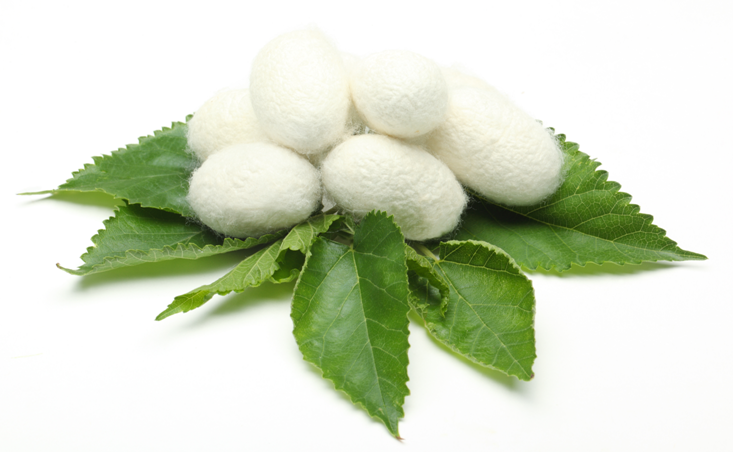
Serrapeptase also has a well-earned reputation for killing pain and stamping out inflammation.
Serrapeptase regulates cellular communication & directly influences the onset of inflammation. It speeds up wound healing, tissue repair, reduces swelling and restores normal skin temperature at the site of inflammation.[20,26]
Studies done in a surgical setting have shown significant reductions in pain & swelling after just 2-3 days of use! [20,23]
Serrapeptase also has a unique ability to thin out fluid in the body allowing them to drain more easily from areas where inflammation is present while simultaneously preventing the accumulation of scar tissue. Even with long-standing pain and physical disability, it’s been shown to be effective for reducing cramps, edema & pain. [21]
Breaking down the fibrin in scar tissue is especially important for people with chronic pain resulting from old injuries and anyone with postural dysfunction because it can help restore functionality and normal range of motion (as a side benefit, it may even reduce the visible appearance of scars). [22]
A clinical trial patients with breast engorgement showed serrapeptase capable of producing marked improvements in pain, swelling, and tissue quality with zero side effects.[24]
A study looking at serrapeptase for treatment of carpel tunnel syndrome showed significant improvement in 65% of the patients after just 6 weeks. [25]
Levagen+® PEA (Palmitoylethanolamide) with LipiSperse®
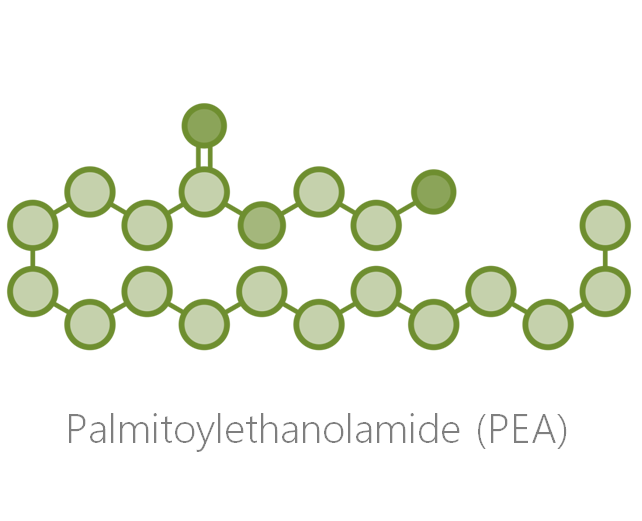
This is fatty acid belongs to a class of compounds known as endocannabinoids. These are molecules your body makes in response to stress & injury that behave like the cannabinoids found in Cannabis.
These substances are naturally-occurring in the body & are found in things like egg yolks, soy-beans & peanuts.
There’s an extensive body of research on PEA and it has successfully & repeatedly demonstrated its’ ability to significantly reduce pain with all types of acute and chronic pain conditions.
Significant reductions in pain have been documented with all the following conditions:
- Low Back Pain
- Sciatica
- Carpal Tunnel Syndrome
- TMJ
- Fibromyalgia
- Neuropathic pain
- Radiculopathy
- Post-operative pain
Impressive results with PEA supplementation have been demonstrated in as little as 14 days! [27]
There’s little doubt about the utility of PEA for people suffering with pain, the challenge with PEA is & always has been getting it into the cell. Due to its fatty nature, PEA has terrible absorption in the body. Levagen+® PEA was created specifically to overcome this problem. Scientists added Lipisperse® which allows PEA to pass much more easily into the cell. Studies have shown that this specific combination radically increases absorption and boosts bioavailability of Levagen+® to 175% of standard PEA. [28]
Ginger Extract
Ginger is a flowering plant that comes from Southeast Asia. It’s highly regarded throughout the world for its’ medicinal properties & it has been in use for thousands of years. Ginger is probably best known for its’ ability to settle the stomach, for relieving nausea and easing the symptoms of colds & flus, but it also has a ton of documented benefits related to pain & inflammation.
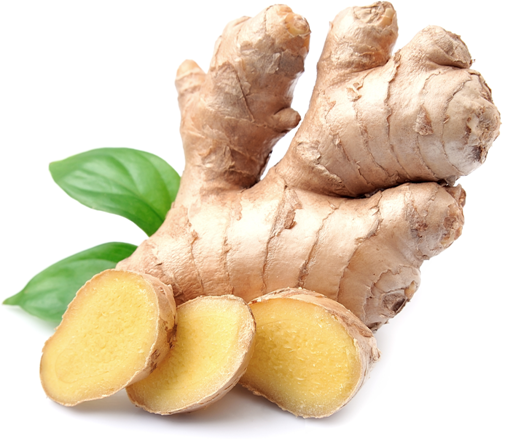
Ginger contains anti-inflammatory compounds that work the same way in the body as many NSAIDs. These compounds block the action of an enzyme (called COX-2) that’s responsible for inflammation & pain. They do it in that same way that drugs like Celebrex, Vioxx & Bextra do but, without the horrible list of side effects that come from using those drugs.
In fact, a study from 2000 showed that ginger extract was just as effective as ibuprofen for pain relief. [29]
Multiple studies have demonstrated ginger’s effectiveness in:
- Relieving pain
- Decreasing inflammation
- Reducing swelling
- Lowering consumption of pain-killing drugs
- Improving functionality in conditions ranging from muscle pain, to rheumatic disorders, to osteoarthritis and even exercise-induced injury. [30,33,34]
Ginger has also been shown to offer massive benefit to people that suffer with migraines. In fact, a study from 2014 showed it to be just as effective at relieving migraine symptoms as the commonly prescribed migraine drug Sumatriptan / Imitrex. [31,32]
Pine Bark Extract
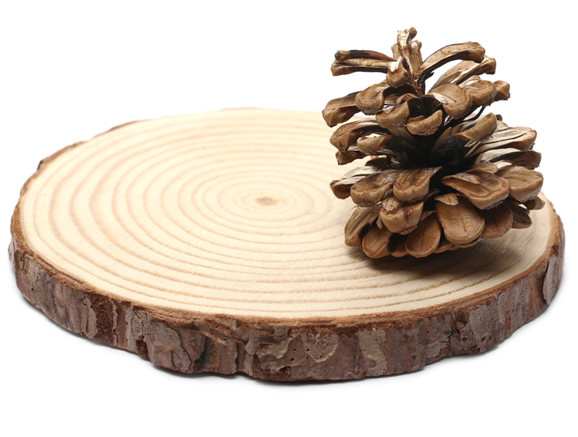
Pine bark extract has an incredible array of benefits pertaining directly to joint health. Despite a very impressive body of science that demonstrates its’ effectiveness, its’ use has been fairly limited.
Multiple studies on pine bark extract have shown it to be highly effective for:
- Pain relief
- Increasing flexibility
- Reducing inflammation
- Improving joint mobility [35]
Consuming pine bark extract has been shown to dampen the activation of your body’s inflammatory “master switch” by nearly 16%. This master switch (NF-kB) is responsible for controlling the release of all the main players in your body’s pro-inflammatory process, many of which contribute to destructive arthritis.
Pine bark extract offers a natural way of blocking the enzymes that that produce inflammation (COX-2) – many NSAIDs target these same enzymes – as well as the enzymes (MMP) that cause cartilage destruction in osteoarthritis. These powerful effects are thought to be at the heart of pine bark’s ability to reduce joint pain. [35]
After 90 days of supplementation, pain levels decreased by 43%, stiffness was reduced by 35% and physical functionality was improved by nearly 50%. How would your life be different if your functionality was increased by fifty percent? While getting all those benefits, people in this study were also able to significantly reduce the amount of NSAIDs they were taking.[36]
Bororganic® - Boron
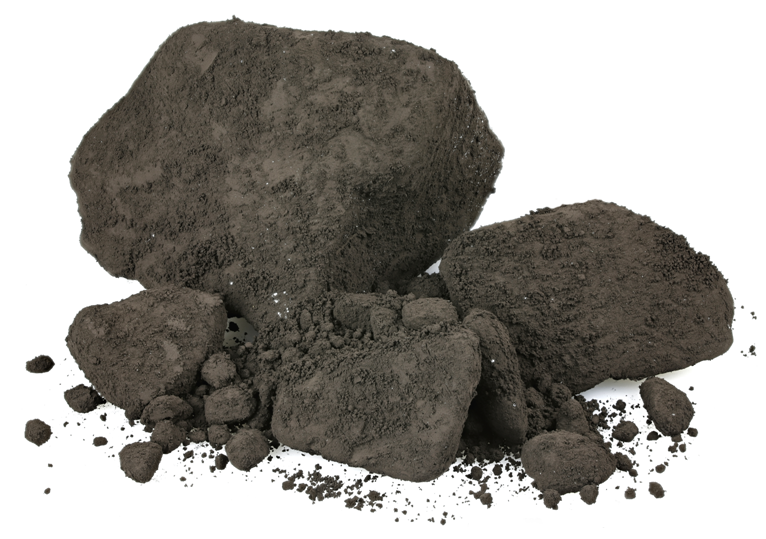
Boron’s ability to reduce pain and improve mobility in people suffering from arthritis & advanced joint degeneration is wildly impressive. So much so, that I’m shocked that Boron is not a household name.
- Multiple studies have demonstrated as much a 70% reduction in pain in just 8 weeks of supplementing with boron! [36]
The joint rigidity that is so often associated osteoarthritis seems to melt away under the influence of boron.
In 3 different studies on osteoarthritis, the average reduction in rigidity was 50% in the first 4 weeks alone!
While some studies on boron have demonstrated results in as little as 2 weeks [39], the heavy-duty benefits really seem to kick in after a month or two. One study on mild-to-moderate osteoarthritis showed that by the 8th week all subjects were completely free of rigidity. [37]
After 8 weeks of treatment, as much as 75% of subjects in these studies were able to stop taking NSAIDs altogether! [37]
If we shift our focus to prevention, the data on boron is just as impressive – A 2007 study looked at boron intake and the prevalence of osteoarthritis around the world. They found the the incidence of arthritis in areas with low boron intake (1mg) was 20-70%; while in areas with higher boron intake (3-10mg) the incidence was only 0-10%. [38] Adding boron to the Joint Shield™ formula was a no brainer.
Honokiol - Magnolia Extract
Honokiol is a naturally occurring compound that comes from a species of magnolia common to Japan. It has been used in traditional medicines throughout Asia for over 2,500 years. Honokiol’s analgesic effects are multifactorial, it interrupts the inflammatory cascade and blocks the action of well-known inflammatory pain mediators (like substance P).

It seems like every time a study looks into honokiol’s mechanism of action, they stumble on to something new.
Honokiol disrupts the inflammatory cascade in multiple ways, but it also seems to rapidly alter the perception of pain by dampening the action of specific neurotransmitters. Studies have shown that honokiol effectively relieves inflammatory pain without motor and cognitive side effects. [40,41,42]
Studies have shown that honokiol actually increases pain tolerance, subjects demonstrate significant reductions in sensitivity to painful stimulus, a decrease in pain-related behavior and there are objective measurements demonstrating honokiol’s ability to block the pain response at both the neurological & cellular level – Honokiol is able to do this even at low doses.[44]
Honokiol may well be the perfect compliment for treatment of any inflammatory pain state.
As an added bonus, honokiol has also been shown to have a positive effect on sleep. The benefits include upregulating sleep-promoting neurons in your brain, significantly shortening the amount of time it takes for you to fall asleep and increasing the amount of non-rapid eye movement sleep [43]
Fulvic & Humic Acid
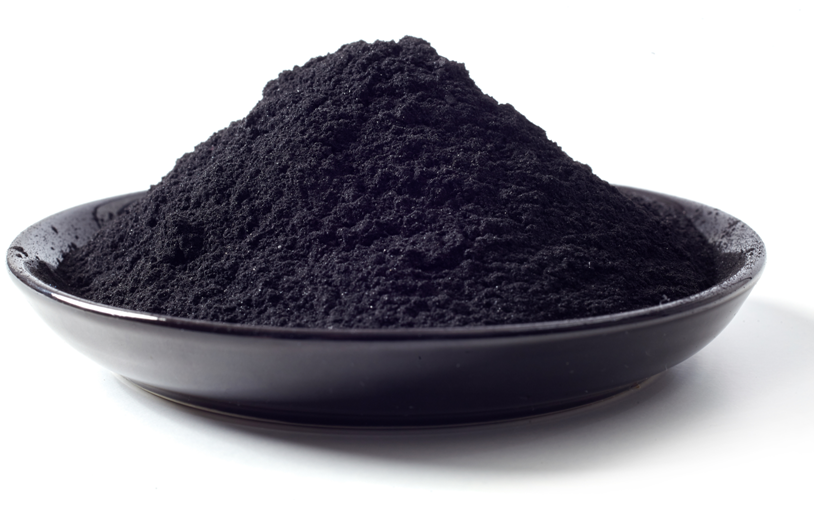
Joint Shield™ is formulated specifically to get potent nutrients to the interior of the cell and maximize their effects. That’s why we chose to round out the formula with humic and fulvic acid.
These are naturally-occurring substances that are found in healthy soil. They move vital nutrients across the cell membrane and into plants & help create an optimal growing environment.
In soil, humic & fulvic acids work by unlocking nutrients, sticking to them & making them available for uptake.
They provide a huge boost to bioavailability of nutrients by increasing the permeability of the cell wall. In short, these substances facilitate the exchange of essential nutrients.
In plants, these acids have consistently demonstrated the ability to improve health and increase crop yields. Empirical evidence indicates that these substances have a similar action in the human body – shuttling nutrients into cells & increasing their bioavailability. [45]
References:
- Sengupta K, Alluri KV, Satish AR,et al. A double blind, randomized, placebo controlled study of the efficacy and safety of 5-LOXIN for treatment of osteoarthritis of the knee. Arthritis Res Ther. 2008;10(4):R85. Epub 2008 Jul 30.
- Cameron M, Chrubasik S. Oral herbal therapies for treating osteoarthritis. Cochrane Database of Systematic Reviews 2014, Issue 5. Art. No.: CD002947.
- Sengupta K, Krishnaraju AV, Vishal AA, et al. Comparative Efficacy and Tolerability of 5-Loxin® and Aflapin® Against Osteoarthritis of the Knee: A Double Blind, Randomized, Placebo Controlled Clinical Study. Int J Med Sci 2010 ;7:366-377.
- Vishal AA, Mishra A, Raychaudhuri SP. A Double Blind, Randomized, Placebo Controlled Clinical Study Evaluates the Early Efficacy of Aflapin® in Subjects with Osteoarthritis of Knee. Int J Med Sci 2011;8(7):615-622.
- Manoj A Suva, Dharmesh B Kheni, Varun P Sureja. Aflapin®: A novel and selective 5-lipoxygenase inhibitor for arthritis management. 2018. Vol. 32(1):16-23.
- Aggarwal BB, Sung B. Pharmacological basis for the role of curcumin in chronic diseases: an age-old spice with modern targets. Trends Pharmacol Sci 2009;30:85-94.
- Kidd PM. Bioavailability and activity of phytosome complexes from botanical polyphenolics: the silymarin, curcumin, green tea, and grape seed extracts. Altern Med Rev 2009;14:226-246
- Julie S Jurenka. Anti-inflammatory properties of curcumin, a major constituent of Curcuma longa: a review of preclinical and clinical research. Altern Med Rev. 2009 Jun;14(2):141-53.
- Kuptniratsaikul V, Thanakhumtorn S, Chinswangwatanakul P, Wattanamongkonsil L, Thamlikitkul V. Efficacy and safety of Curcuma domestica extracts in patients with knee osteoarthritis. J Altern Complement Med. 2009 Aug; 15(8):891-7.
- Kuptniratsaikul V, Dajpratham P, Taechaarpornkul W, et al. : Efficacy and safety of Curcuma domestica extracts compared with ibuprofen in patients with knee osteoarthritis: A multicenter study. Clin Interv Aging 2014;9:451–458
- Chandran B, Goel A. A randomized, pilot study to assess the efficacy and safety of curcumin in patients with active rheumatoid arthritis. Phytother Res. 2012 Nov; 26(11):1719-25.
- Belcaro G, Dugall M, Luzzi R, et al. : Meriva(R)+glucosamine versus condroitin+glucosamine in patients with knee osteoarthritis: An observational study. Eur Rev Med Pharmacol Sci 2014;18:3959–3963
- Nakagawa Y, Mukai S, Yamada S, et al. : Short-term effects of highly-bioavailable curcumin for treating knee osteoarthritis: A randomized, double-blind, placebo-controlled prospective study. J Orthop Sci 2014;19:933–939
- Pinsornsak P, Niempoog S: The efficacy of Curcuma longa L. extract as an adjuvant therapy in primary knee osteoarthritis: A randomized control trial. J Med Assoc Thai 2012;95 Suppl 1:S51–S58
- Madhu K, Chanda K, Saji MJ: Safety and efficacy of Curcuma longa extract in the treatment of painful knee osteoarthritis: A randomized placebo-controlled trial. Inflammopharmacology 2013;21:129–136
- Yasunari Takada, Anjana Bhardwaj, Pravin Potdar, Bharat B Aggarwal. Nonsteroidal anti-inflammatory agents differ in their ability to suppress NF-kappaB activation, inhibition of expression of cyclooxygenase-2 and cyclin D1, and abrogation of tumor cell proliferation. Oncogene. 2004 Dec 9;23(57):9247-58.
- Cuomo J, Dixon ES, Dern A, et al. Comparative bioavailability of unformulated curcumin and a curcumin-phosphatidylcholine complex. Manuscript submitted for publication to J Nat Prod
- Anand P, Kunnumakkara AB, Newman RA, Aggarwal BB. Bioavailability of curcumin: problems and promises. Mol Pharm 2007;4:807-818.
- G. Belcaro; M. Rosaria Cesarone; M. Dugall; L. Pellegrini; A. Ledda; M. Giovanna Grossi; S. Togni; G. Appendino. E!cacy and Safety of Meriva®, a Curcumin-phosphatidylcholine Complex, during Extended Administration in Osteoarthritis Patients. Alternative Medicine Review 2010. Volume 15, Number 4. 337-44.
- P M Esch, H Gerngross, A Fabian. Reduction of postoperative swelling. Objective measurement of swelling of the upper ankle joint in treatment with serrapeptase— a prospective study. Fortschr Med. 1989 Feb 10;107(4):67-8, 71-2.
- G Bracale, L Selvetella. Clinical study of the efficacy of and tolerance to seaprose S in inflammatory venous disease. Controlled study versus serratio-peptidase. Minerva Cardioangiol. 1996 Oct;44(10):515-24.
- V. Gupte & U. Luthra Analytical techniques for serratiopeptidase: A review. J Pharm Anal. 2017 Aug; 7(4): 203–207.
- T H Al-Khateeb, Y Nusair Effect of the proteolytic enzyme serrapeptase on swelling, pain and trismus after surgical extraction of mandibular third molars. Int J Oral Maxillofac Surg. 2008 Mar;37(3):264-8.
- Kee W.H., Tan S.L., Lee V., Salmon Y.M. The treatment of breast engorgement with Serrapeptase (Danzen); a randomized double-blind controlled trial. Singapore Med. J. 1989;30:48–54.
- Panagariya A., Sharma A.K. A preliminary trial of serratiopeptidase in patients with carpal tunnel syndrome. J. Assoc. Physicians India. 1999;47:1170–1172.
- S.B. Jadhav, et. al. Serratiopeptidase: Insights into the therapeutic applications. Biotechnol Rep (Amst). 2020 Dec; 28:
- Marini I, Bartolucci ML, Bortolotti F, Gatto MR, Bonetti GA. Palmitoylethanolamide versus a nonsteroidal anti‐inflammatory drug in the treatment of temporomandibular joint inflammatory pain. J Orofac Pain 2012; 26: 99–104
- D. Briskey, AR. Mallard & A. Rao. Increased Absorption of Palmitoylethanolamide Using A Novel Dispersion Technology System LipiSperse®. Journal of Nutraceuticals & Food Science. 2020 Vol. 5 Num 2:3.
- H Bliddal 1, A Rosetzsky, P Schlichting, M S Weidner, L A Andersen, H H Ibfelt, K Christensen, O N Jensen, J Barslev. A randomized, placebo-controlled, cross-over study of ginger extracts and ibuprofen in osteoarthritis. Osteoarthritis Cartilage. 2000 Jan;8(1):9-12.
- Christopher D Black, Matthew P Herring, David J Hurley, Patrick J O’Connor. Ginger (Zingiber officinale) reduces muscle pain caused by eccentric exercise. J Pain. 2010 Sep;11(9):894-903
- Laís Bhering Martins, et al. Double-blind placebo-controlled randomized clinical trial of ginger ( Zingiber officinale Rosc.) addition in migraine acute treatment. Cephalalgia. 2019 Jan;39(1):68-76.
- M Maghbooli, F Golipour, A Moghimi Esfandabadi, M Yousefi. Comparison between the efficacy of ginger and sumatriptan in the ablative treatment of the common migraine. Phytother Res. 2014 Mar;28(3):412-5.
- R D Altman, K C Marcussen. Effects of a ginger extract on knee pain in patients with osteoarthritis. Arthritis Rheum. 2001 Nov;44(11):2531-8.
- Srivastava KC, Mustafa T. Ginger (Zingiber officinale) in rheumatism and musculoskeletal disorders. Med Hypotheses 1992; 39: 342–8.
- Peter Cisár 1, Richard Jány, Iweta Waczulíková, Katarína Sumegová, Jana Muchová, Jozef Vojtassák, Zdenka Duraćková, Miroslav Lisý, Peter Rohdewald. Effect of pine bark extract (Pycnogenol) on symptoms of knee osteoarthritis. Phytother Res. 2008 Aug;22(8):1087-92.
- R. Farid, Z. Mirfeizi, M. Mirheidari, Z. Rezaieyazdi, H. Mansouri, H. Esmaelli, S.Zibadi, P. Rohdewald, R.R. Watson. Pycnogenol supplementation reduces pain and stiffness and improves physical function in adults with knee osteoarthritis. November 2007. Nutrition Research27(11):692-697
- Lara Pizzorno. Nothing Boring About Boron. Integr Med (Encinitas). 2015 Aug; 14(4): 35–48.
- Korkmaz M, Sayli U, Sayli BS, et al. Estimation of human daily boron exposure in a boron-rich area. Br J Nutr. 2007;98(3):571–575.
- Pietrzkowski Z, Phelan MJ, Keller R, Shu C, Argumedo R, Reyes-Izquierdo T. Short-term efficacy of calcium fructoborate on subjects with knee discomfort: a comparative, double-blind, placebo-controlled clinical study. Clin Interv Aging. 2014 Jun;9:895–899.
- Yi-Ruu Lin1, Hwei-Hsien Chen, Chien-Hsin Ko, Ming-Huan Chan. Effects of honokiol and magnolol on acute and inflammatory pain models in mice. Life Sci. 2007 Sep 8;81(13):1071-8
- Kim, B. H., and Cho, J. Y. Anti-inflammatory effect of honokiol is mediated by PI3K/Akt pathway suppression. Acta Pharmacol. Sin. 2008: 29, 113–122
- Chao, L. K., Liao, P.-C., Ho, C.-L., Wang, E. I.-C., Chuang, C.-C., Chiu, H.-W., et al. Anti-Inflammatory bioactivities of honokiol through inhibition of protein Kinase c, mitogen-activated protein Kinase, and the NF-κB pathway to reduce LPS-induced TNFα and NO expression. J. Agric. Food Chem. 2010. 58, 3472–3478.
- Qu WM, Yue XF, Sun Y, Fan K, Chen CR, Hou YP, et al. Honokiol promotes non-rapid eye movement sleep via the benzodiazepine site of the GABA(A) receptor in mice. Br J Pharmacol(2012) 167(3):587–9810.1111/j.1476-5381.2012.02010.x
- Anna Woodbury, Shan Ping Yu, Ling Wei, and Paul García. Neuro-Modulating Effects of Honokiol: A Review. Front Neurol. 2013; 4: 130
- http://www.earthgreen.com/humic-vs-fulvic-acids
